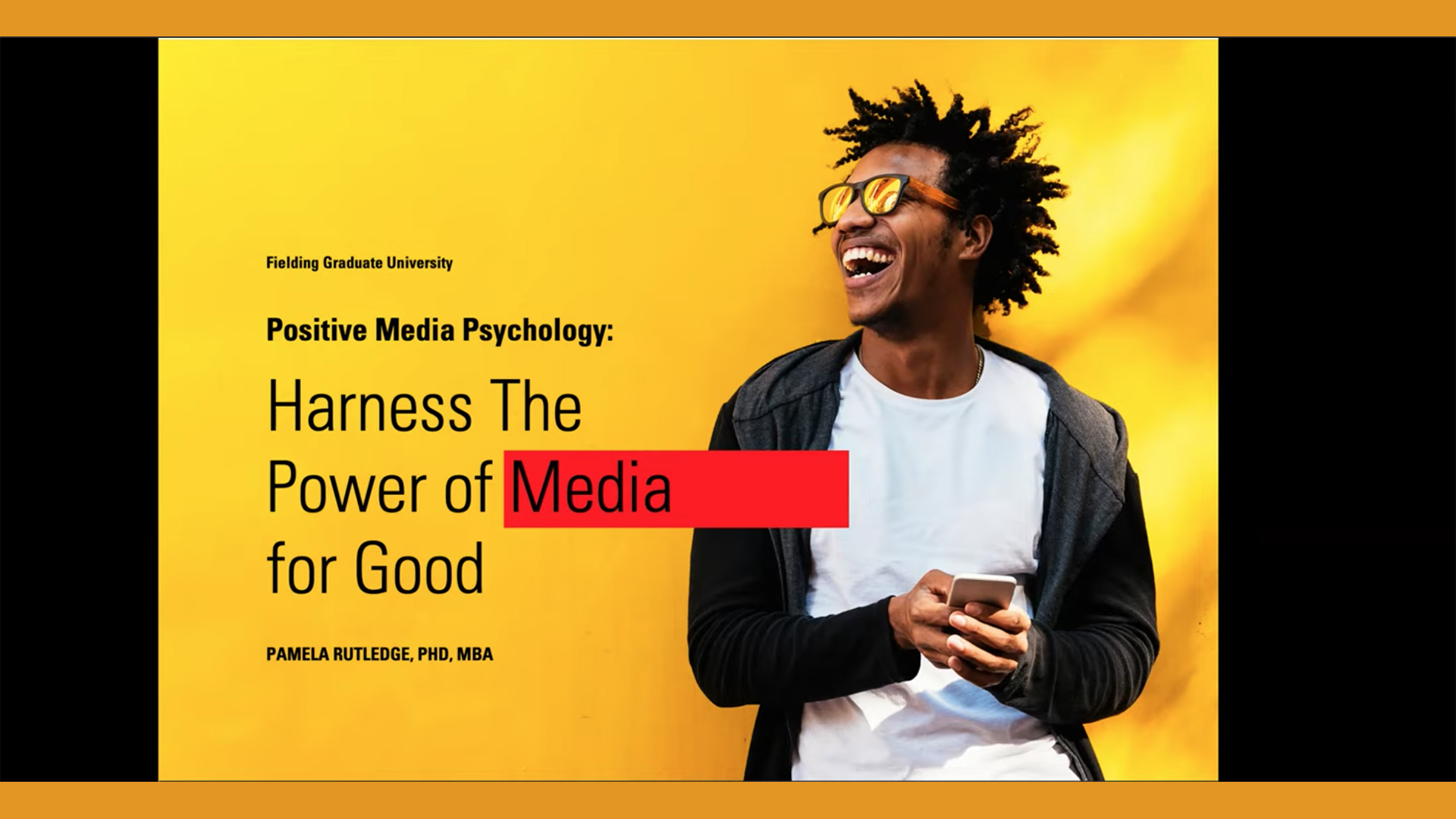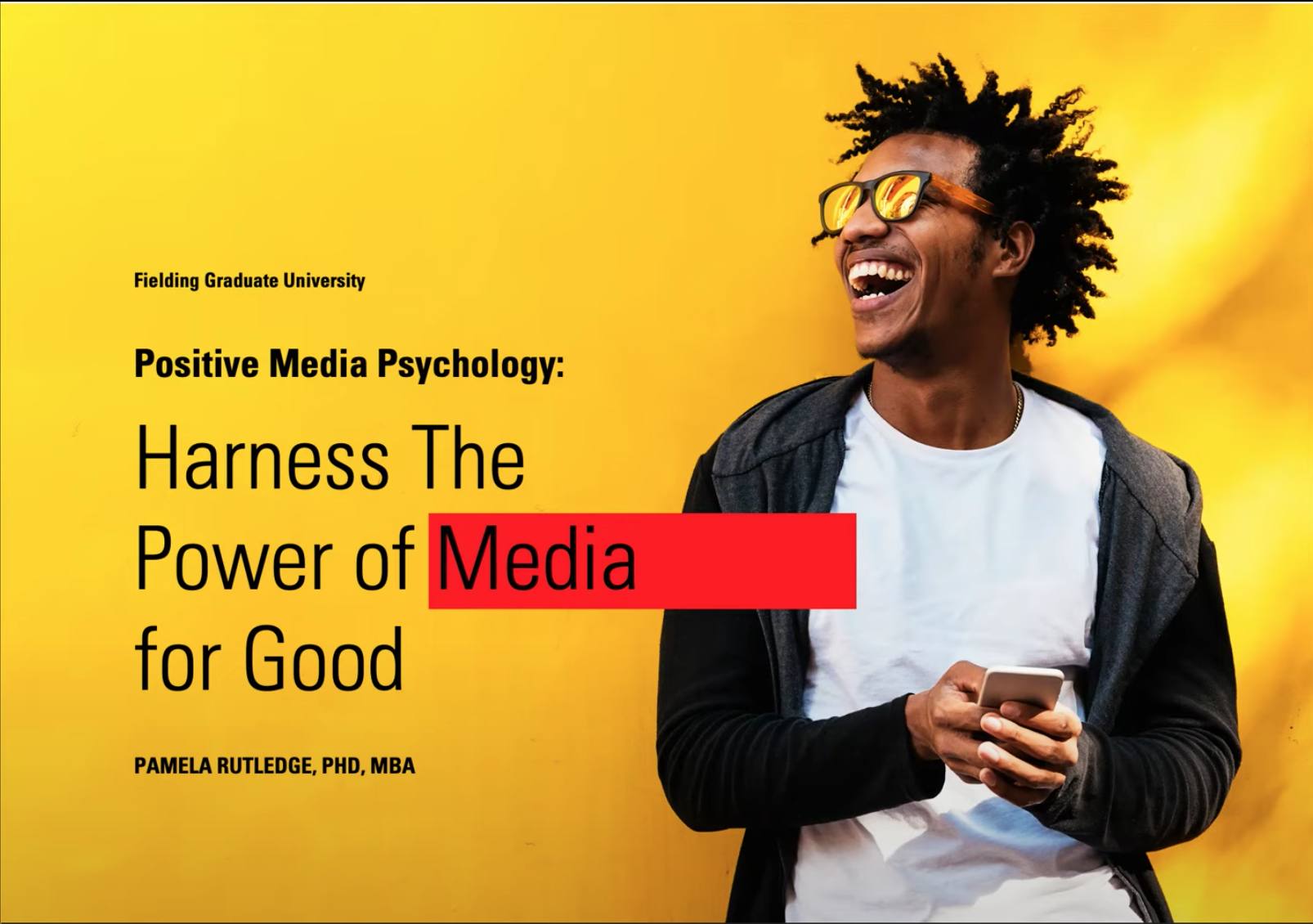What is Positive Media Psychology?
Pam Rutledge2021-08-29T14:00:41-07:00presenter PAM RUTLEDGE, PHD Doctoral faculty, Media Psychology zoom webinar May 19, 2021 Positive Media Psychology applies the theories and research from positive psychology to media and technology. Whether I’m working with interactive media, entertainment experiences, marketing content, social media, mobile devices or the news, a positive media psychology paradigm shifts the perspective away from looking for what’s wrong toward how mediated experiences can make lives and society better. In this brief presentation, I will discuss how media and technology can contribute to positive emotions, such as happiness and empathy; what technologies are used to support optimal engagement and mindfulness [...]




